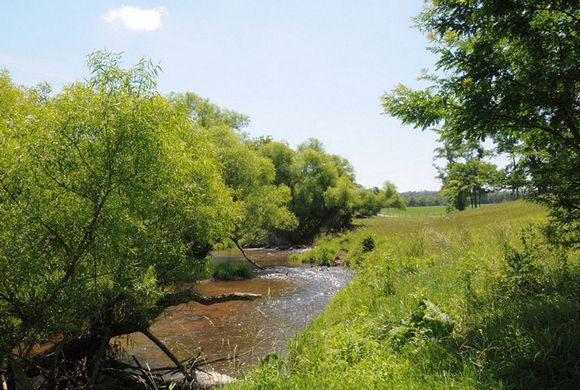The U.S. Environmental Protection Agency and Army Corps of Engineers have announced plans to once again define what waterways can be regulated by the federal government, prompting concerns from Farm Bureau that the move could result in a return to broader federal regulation of farmland.
The agencies say they plan to begin a new rulemaking process that will reverse the Trump administration’s 2020 Navigable Waters Protection Rule, restore federal oversight of waterways that were federally regulated prior to the Obama administration’s 2015 Waters of the U.S. Rule, and then develop a new rule.
Farm Bureau expressed frustration with the announcement and called on EPA Administrator Michael Regan to make good on his promise to take into account farmers’ concerns over federal water regulation.
“The American Farm Bureau Federation is extremely disappointed in the Environmental Protection Agency’s announcement of its intention to reverse the environmentally conscious Navigable Waters Protection Rule, which finally brought clarity and certainty to clean water efforts,” American Farm Bureau President Zippy Duvall said. “Administrator Regan recently recognized the flaws in the 2015 Waters of the U.S. Rule and pledged not to return to those overreaching regulations. We are deeply concerned that the EPA plans to reverse the Navigable Waters Protection Rule, which puts the future of responsible protections at risk.”
The question that the Obama, Trump, and now Biden administrations have sought to answer is how to define “waters of the U.S.” (or WOTUS), which refers to those waterways that fall under the federal government’s jurisdiction to regulate under the Clean Water Act. Farm Bureau led opposition to the 2015 WOTUS rule, which took an overly broad approach to defining federally regulated waterways and would have subjected nearly all of Pennsylvania farmland to federal water regulation. The rule was put on hold by several federal court rulings that expressed agreement with Farm Bureau’s assertion that EPA and the Army Corps overstepped its authority under the Clean Water Act. The 2020 rule was largely welcomed by agriculture as more clearly defining which waterways are subject to federal regulation.
“This is an important moment for Administrator Regan and will be pivotal to his ability to earn the trust of farmers on this and other administration priorities,” Duvall added. “He must keep his word to recognize the efforts of agriculture and not return to flawed, overly complicated and excessive regulations.”
Regan, for his part, expressed interest in developing a new rule that takes into account lessons learned from both the Obama-era and Trump-era regulations, saying the new definition will be developed with “input from a wide array of stakeholders.” EPA’s news release listed as one of the priorities for the new rule “reflecting the experience of and input received from landowners [and] the agricultural community that fuels and feeds the world.”
EPA is planning a two-step process and the Trump rule will remain in effect until the first step is completed. First, EPA plans to repeal the current rule, which will cause the definition of WOTUS to revert back to what it was prior to the Obama rule. The second step is developing a new rule with a revised definition of WOTUS. At the same time, EPA is seeking court action to effectively put on hold lawsuits challenging the 2020 rule as they will be rendered moot.
Latest PFB News:
Help lead Pennsylvania Agriculture

